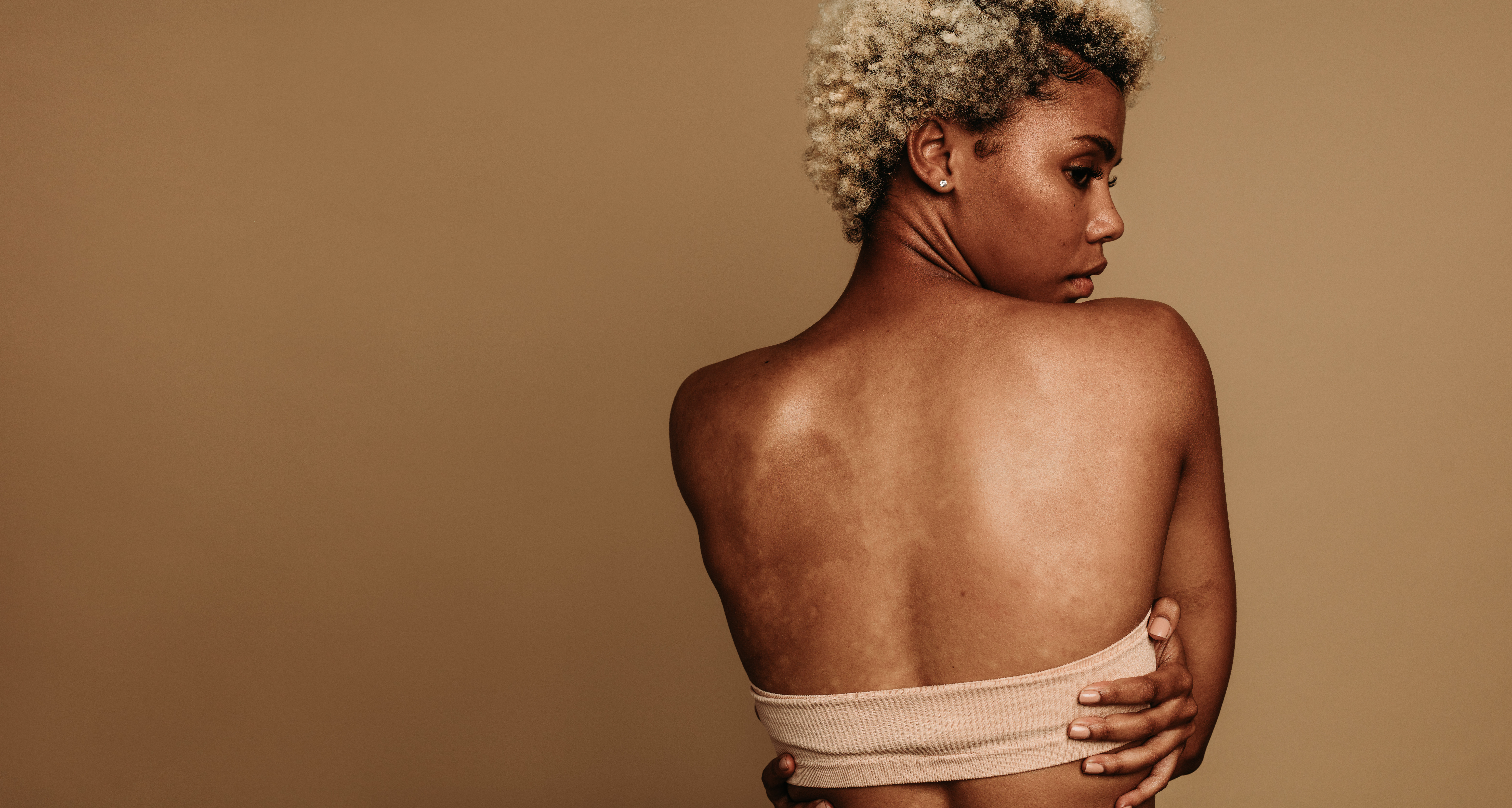Crystal Moore’s battle with hidradenitis suppurtiva started when she was a pre-teen. At just 12, the finance worker and life-hack content creator began to struggle with the difficult condition.
“I would get these painful boils that I would have to go to the hospital to have drained, and we weren’t sure what it was. The doctors had several things they thought it was all attributed to, my weight or hygiene,”Moore shared.
Hidradenitis suppurativa (HS), often called acne inversa, is a challenging and often misunderstood condition. This chronic inflammatory skin disorder is characterized by painful, inflamed bumps and abscesses. It can significantly affect the quality of life for those who grapple with its persistent nature.
Moore says she was unable to do different activities because of the pain caused by the condition. She would also avoid certain clothes due to her scars. She also endured constant ridicule.
“I’ve had several flare-ups pop up while at school or work, which is embarrassing. I never felt like I could get close to anyone because they would be disgusted by me. I was often made fun of and ridiculed because of the bad smell from the drainage. Since expecting more of myself and learning to love myself, it’s helped me learn to expect and believe others love me,” Moore said.
Hidradenitis Suppurativa Explained By a Dermatologist
Hidradenitis suppurativa can affect anyone however, the Black community disproportionately suffers the most. The impact of hidradenitis suppurativa is particularly pronounced among Black women, presenting both physical and emotional challenges.
“HS commonly presents as chronic and painful abscesses, sinus tracts in areas where skin-to-skin contact is prevalent, like the armpits, under the breast, or the groin area,” Board Certified Dermatologist and founder of Bergen Dermatology, Dr. Naana Boakye said.
Boakye explains that to the naked eye, it can easily be misdiagnosed as another condition.
“However, HS is distinguished by how frequently it occurs, its scarring, and the formation of underskin pathways. The best way to ensure you have HS and not any other condition is to seek medical attention from a dermatologist to verify,” Dr. Boakye said.
Unfortunately, there’s a lack of representation in clinical trials for Black women and other people of color.
“The Black community is most affected by the disorder and often goes for extended periods without diagnosis or treatment. Early detection is crucial to proper care and management of HS, so Black women must recognize the signs and symptoms as soon as possible,” she said.
She revealed that there isn’t an exact cause for HS, but specific triggers can contribute to the condition.
“Hormonal changes, genetics, obesity, and smoking are factors that can add to the occurrence of HS. Wearing tight-fitting clothing and the friction caused by such could also be a factor. Maintaining a proper skin care regimen and avoiding the above factors are great places to start managing HS,” she stated.
Treatment Options for HS
According to Dr. Boakye, there are several treatments for HS. Antibiotics, hormonal therapies, and biologics often manage and reduce inflammation. Some cases of HS call for corticosteroid injections and deroofing of the lesions, while severe cases may require surgery.
“Making lifestyle changes like weight management and smoking cessation are beneficial not just to HS but also to promote an overall healthy lifestyle. Discussing nutrition with patients is very important. Most patients should adopt a whole foods and plant-forward diet,” Dr. Boakye said.
She advised working closely with a dermatologist to craft a treatment plan for your HS needs.
HS Warrior Journey with Skin Condition
Moore’s journey with HS has required her to be proactive in many ways.
“I eventually went to see a specialist who diagnosed me with Hidradenitis Suppurativa. Although all he did was diagnose me, there was no action plan or any follow-up, so most of my life has been researching on my own would work and doesn’t work and trial and error,” she added. “I learned how to pack my own wound and have worked on lifestyle changes to help me get into remission.”
Moore admits that it wasn’t until two years ago that she fully accepted her HS. Thanks to another content creator who made her realize she wasn’t alone, and that’s why she started her HS content. Moore stated that she learned to advocate for herself and other HS warriors. She also wants those battling HS to know it’s not their fault.
“It’s not your weight or hygiene. This condition is hard, but a large community supports us,” Moore said.
